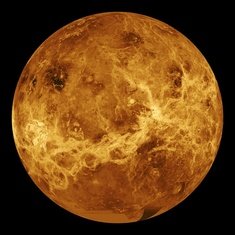Featured Quizzes
User Quizzes
Create Quiz
Data and Charts
Badges and Games
About JetPunk
JetPunk Shop
Dark Mode

astronomy & history
Let's Go
Rate:
Last updated: June 9, 2020
You have not attempted this quiz yet.
More quiz info >>
| First submitted | June 8, 2020 |
| Times taken | 44 |
| Average score | 70.0% | Report this quiz | Report |
20:00
The quiz is paused. You have remaining.
Scoring
You scored / = %
This beats or equals
% of test takers
also scored 100%
The average score is
Your high score is
Your fastest time is
Keep scrolling down for answers and more stats ...
1.
The sun and thus our solar system orbits the center of our Galaxy.
True
✓
False
✓
2.
The first man to complete one orbit of earth in space was from
Soviet Union
✓
Japan
✓
USA
✓
China
✓
3.
In what year was this first accomplished?
1961
✓
1995
✓
1952
✓
1969
✓
4.
Who first introduced the idea of the heliocentric model - the theory that not earth, but the sun is the center of the solar system?
Galileo Galilei, in 1584
✓
Aristarchus of Samos, in 280 BC
✓
Albert Einstein, in 1945
✓
Steven Hawking, in 2000
✓
in 1543, Nicolaus Copernicus published a scientific paper "proving" the heliocentric model (Which was accepted and more thoroughly proven by Galilei. The theory however was much older, even though it got little attention back then.
5.
What manmade object is the furthest from earth?
Hubble telescope
✓
Chinese robot on Neptune
✓
Curiosity rover on Mars
✓
Voyager 1
✓
Mars is 145 million km away, Hubble is in Earth's orbit 568 km high, there is no and never has been a robot on Neptune, Voyager 1 is 22 billion km away
6.
Johannes Kepler discovered and proved, that planets move around the sun in elliptical orbits and not in perfect circles. When did he publish his paper?
210 BC
✓
1609
✓
1845
✓
2004
✓
7.
What planet is most similar in size to earth?
Neptune
✓
Mars
✓
Mercury
✓
Venus
✓
Earth is 5% bigger than Venus, 88% bigger than Mars and only 26% the size of Neptune
8.
Imagine Earth was 1 meter in diameter, how big would the sun then be, if the ratio was kept the same?
109 meters
✓
5.8 meters
✓
12 meters
✓
3 meters
✓
9.
Who discovered the moon?
Albert Einstein
✓
Socrates
✓
probably some animal millions of years ago
✓
Isaac Newton
✓
10.
Pluto is much further from the sun than Earth is. Does that mean its orbital velocity (how fast it moves relative to the sun) is faster, or slower than Earth's?
Pluto moves slower
✓
Pluto moves faster
✓
Pluto moves much slower. The further an object is away from the sun, the slower it has to move to maintain a stable orbit, since gravity weakens over distance.
11.
What is the biggest moon in the solar system?
Ganymede - Jupiter
✓
Earth's moon
✓
Deimos - Mars
✓
Titania - Uranus
✓
12.
Which planet has the biggest moon relative to its own size? - in other words: Which planet is most similar in size to its biggest moon?
Mercury
✓
Jupiter
✓
Saturn
✓
Earth
✓
by far
13.
If the Sun was replaced by a black hole of equal mass, the Earth would be sucked in pretty quickly
False
✓
True
✓
nothing would change for Earth's orbit, since it depends solely on gravity, not the type of object it orbits.
14.
There are more stars in the (observable) Universe than there are grains of sand on Earth
True
✓
False
✓
an estimated 10^18 grains versus an estimated 10^23 stars in the universe
15.
Say the International Space Station crosses directly over Berlin. Is Berlin then closer to the ISS or to Paris?
Paris
✓
ISS
✓
Paris is 900km South West, while the ISS is only 400 km above
16.
What would happen if an asteroid, 200km in diameter, would hit earth directly?
it would create a large crater and possibly destroy most houses in close proximity
✓
it would burn up in the upper atmosphere like a shooting star
✓
it would kill all life on earth and completely sterilise the planet
✓
earth would "explode" and shatter into pieces
✓
All life on Earth, be it in the best Bunker, the deepest ocean or in the air would die either immediately or shortly after - including all bacteria
17.
Neptune is the furthest planet from the sun. Earth is the 3rd closest. Is Earth closer to the Sun or to Neptune?
Sun
✓
Neptune
✓
When Earth and Neptune are on the same side of the Sun, the closest they get to each other is 4.3 billion km. The Sun is only 150 million km away.
18.
How many men have walked on the moon?
2
✓
3
✓
12
✓
7
✓
19.
With current technology, in a perfectly planned mission, it would take about 2 months to get from Earth to Mars.
True
✓
False
✓
Because of the minimum distance of 55 million km it takes 6 to 8 months of traveling to get there.
20.
The Sun is producing/converting a lot of energy by fusing atoms together. How much mass does the Sun lose because of fusion per second?
2 tons
✓
120 kg
✓
4 million tons
✓
64 grams
✓
No comments yet
New and Popular
Save Your Progress
Copyright H Brothers Inc, 2008–2024
Contact Us | Go To Top | View Mobile Site
